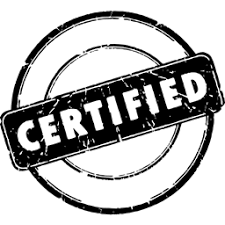 The process of developing a history dissertation is a strenuous one that involves extensive research, critical analysis, and a deep dive into the records of the past. As you diligently piece together your historical narrative, you may find yourself immersed in centuries-old texts, archives, and primary sources, striving to crack the mysteries of bygone eras. However, before you present your study in the academic field, there's a pivotal step that should never be underestimated or overlooked: editing. Editing is the invisible hand that refines and polishes your dissertation, elevating it from a raw collection of ideas to an accurately prepared masterpiece. It's the process that ensures your arguments are coherent, your writing is clear, and your historical analysis is impeccable. But here's the catch: editing your own work can be challenging. Your familiarity with the content may blind you to errors, inconsistencies, and structural issues that are apparent to fresh eyes. This is precisely where our team of dedicated history dissertation project editing experts steps in, offering you help to ensure that it reaches its full potential. Explore why you should consider paying our experts to edit your work, solving the pivotal reasons that make our service indispensable. Our team possesses a profound understanding of history, solving the hardships of historical research with finesse. We excel in the art of error detection, meticulously combing through your work to eliminate grammatical, spelling, and punctuation mistakes that might tarnish your academic credibility. We understand that history is not just about presenting facts; it's about telling a compelling story through rigorous analysis. Assess the flow of your arguments, ensuring that your dissertation is a seamless narrative that captivates readers and examiners alike. As history often necessitates adherence to specific citation styles, our editors are well-versed in various citation formats, ensuring that your references are not only accurate but also consistent. Our commitment to quality is relentless, and we employ a rigorous quality assurance process to guarantee that your edited dissertation meets the highest standards. With expert assistance, you not only save precious time but also gain the confidence to present your historical research with pride. We understand the financial constraints students often face, which is why we offer our services at affordable rates, ensuring that exemplary editing expertise is within your reach.
The process of developing a history dissertation is a strenuous one that involves extensive research, critical analysis, and a deep dive into the records of the past. As you diligently piece together your historical narrative, you may find yourself immersed in centuries-old texts, archives, and primary sources, striving to crack the mysteries of bygone eras. However, before you present your study in the academic field, there's a pivotal step that should never be underestimated or overlooked: editing. Editing is the invisible hand that refines and polishes your dissertation, elevating it from a raw collection of ideas to an accurately prepared masterpiece. It's the process that ensures your arguments are coherent, your writing is clear, and your historical analysis is impeccable. But here's the catch: editing your own work can be challenging. Your familiarity with the content may blind you to errors, inconsistencies, and structural issues that are apparent to fresh eyes. This is precisely where our team of dedicated history dissertation project editing experts steps in, offering you help to ensure that it reaches its full potential. Explore why you should consider paying our experts to edit your work, solving the pivotal reasons that make our service indispensable. Our team possesses a profound understanding of history, solving the hardships of historical research with finesse. We excel in the art of error detection, meticulously combing through your work to eliminate grammatical, spelling, and punctuation mistakes that might tarnish your academic credibility. We understand that history is not just about presenting facts; it's about telling a compelling story through rigorous analysis. Assess the flow of your arguments, ensuring that your dissertation is a seamless narrative that captivates readers and examiners alike. As history often necessitates adherence to specific citation styles, our editors are well-versed in various citation formats, ensuring that your references are not only accurate but also consistent. Our commitment to quality is relentless, and we employ a rigorous quality assurance process to guarantee that your edited dissertation meets the highest standards. With expert assistance, you not only save precious time but also gain the confidence to present your historical research with pride. We understand the financial constraints students often face, which is why we offer our services at affordable rates, ensuring that exemplary editing expertise is within your reach.
Why Pay Our Experts to Edit Your History Dissertation?
- Expertise in History: Editing a history paper requires an in-depth understanding of the subject matter. Our experts are well-versed in historical research and writing, ensuring that your dissertation not only adheres to academic standards but also effectively communicates your historical analysis.
- Error-Free Content: Even the most meticulous writers can overlook errors in their work, which is why you should pay someone to edit a dissertation on history since they will meticulously proofread your dissertation, addressing issues such as grammar, spelling, punctuation, and formatting errors. Our experts leave no stone unturned to ensure your document is pristine.
- Adherence to Citation Styles: History projects often require adherence to specific citation styles, such as Chicago, APA, or MLA, and since our editors are well-versed in these styles, they will ensure that your citations and references are consistently formatted and accurate.
- Quality Assurance: Our team employs a rigorous quality assurance process to guarantee that your edited dissertation meets the highest standard,s as we review each edited document carefully to ensure that all edits have been implemented correctly.
- Time Efficiency: Editing a dissertation can be a time-consuming process, diverting your attention from other important academic and personal commitments, and by entrusting this task to our experts, you'll free up valuable time to focus on other aspects of your academic study.
- Confidence in Your Work: We ensure your dissertation not only looks professional but also boosts your confidence in your own work. Knowing that your dissertation has been thoroughly reviewed and refined by experts in the field can help you feel more assured when defending your research.
- Affordable Assistance: While our editing services offer a level of expertise that is invaluable, we understand that students often have budget constraints. That's why we offer affordable pricing without compromising on the quality of our services, as we believe that every history student should have access to excellent editing assistance.
Entrusting the editing of your history dissertation to our experts is a wise investment in your academic success. With their deep knowledge of history, meticulous attention to detail, and commitment to excellence, our editors will elevate your dissertation to its highest potential. Our service offers not only error-free content but also enhanced clarity, coherence, and adherence to citation styles, ensuring that your research shines. The time saved by outsourcing the editing process can be invaluable as you juggle various academic and personal responsibilities. By choosing our affordable assistance, you not only gain a polished and refined history dissertation but also the confidence to present your research with pride. Your dissertation is proof of your scholarly achievements, and we are here to make sure it stands out for all the right reasons. Don't compromise on the quality of your history dissertation. Let an expert help you with the assurance that your hard work has been refined to perfection.
Need Professional Help with History Dissertation Editing?
 A history dissertation is a task that involves unearthing hidden narratives and crafting a scholarly masterpiece that contributes to our understanding of history. As difficult as the research and writing process may be, it is in the editing phase that the true artistry of a historian comes to the fore. Editing your history dissertation is the phase where the raw brilliance of your research and ideas is refined into a masterpiece of academic study. It is where the fine brushstrokes are applied, turning a cacophony of ideas into a symphony of knowledge. Our aim is to explain the details, challenges, and indispensable techniques that make the difference between a good dissertation and an exceptional one. Whether you are a budding historian or a seasoned scholar, this exploration into the art of editing will prove invaluable in your academic journey. As editors, we have witnessed countless students exploring editing practices, facing challenges that range from grammar and style to the point of historical accuracy. Through our experience, we have honed a set of techniques and strategies that have consistently led our students toward success. Let us address the fundamental question of how you can edit a history paper properly, offering a comprehensive roadmap to guide you through the editing process effectively. We will also tackle the often-neglected issue of time management in editing history dissertations, providing insights into how long it should take to edit dissertations thoroughly. From grammar and consistency checks to the critical role of professional editing assistance, we will equip you with the tools and knowledge needed to elevate your dissertation from a mere manuscript to a scholarly triumph. With our guidance, your history dissertation will transform from rough ideas into a shining work of art in the crown of historical scholarship.
A history dissertation is a task that involves unearthing hidden narratives and crafting a scholarly masterpiece that contributes to our understanding of history. As difficult as the research and writing process may be, it is in the editing phase that the true artistry of a historian comes to the fore. Editing your history dissertation is the phase where the raw brilliance of your research and ideas is refined into a masterpiece of academic study. It is where the fine brushstrokes are applied, turning a cacophony of ideas into a symphony of knowledge. Our aim is to explain the details, challenges, and indispensable techniques that make the difference between a good dissertation and an exceptional one. Whether you are a budding historian or a seasoned scholar, this exploration into the art of editing will prove invaluable in your academic journey. As editors, we have witnessed countless students exploring editing practices, facing challenges that range from grammar and style to the point of historical accuracy. Through our experience, we have honed a set of techniques and strategies that have consistently led our students toward success. Let us address the fundamental question of how you can edit a history paper properly, offering a comprehensive roadmap to guide you through the editing process effectively. We will also tackle the often-neglected issue of time management in editing history dissertations, providing insights into how long it should take to edit dissertations thoroughly. From grammar and consistency checks to the critical role of professional editing assistance, we will equip you with the tools and knowledge needed to elevate your dissertation from a mere manuscript to a scholarly triumph. With our guidance, your history dissertation will transform from rough ideas into a shining work of art in the crown of historical scholarship.
How do you edit a history dissertation paper appropriately?
- Proofreading for Grammar and Spelling: Careful proofreading is essential to catch and rectify grammar and spelling errors. These seemingly minor mistakes can diminish the overall quality of your history dissertation, so invest time in thorough proofreading.
- Consistency in Formatting: Maintaining a consistent design throughout your dissertation is crucial to ensure that your citations, headings, font sizes, and margins adhere to your institution's prescribed style guide, which adds a professional touch to your work.
- Eliminating Redundancy and Wordiness: Streamline your writing by eliminating unnecessary words and phrases. Avoid repetition and overly complex language, as concise, clear writing enhances the overall impact of your dissertation.
- Fact-Checking and Accuracy: Thoroughly fact-check historical data and information in your dissertation and ensure that all historical facts are accurate and supported by credible sources to avoid undermining the credibility of your research.
- Engage a Fresh Set of Eyes: Requesting our help with history dissertation editing or reviewing your work provides fresh perspectives that can uncover errors and provide valuable feedback that you might have missed, since an extra pair of eyes enhances the quality of your dissertation.
- Read Aloud: Reading your dissertation aloud can reveal awkward phrasing and areas where the writing may lack fluidity, which helps in improving the overall readability of your work, making it more engaging for readers.
How long should it take to edit history dissertations thoroughly?
Editing your dissertation for a history course thoroughly is a meticulous endeavor that demands both time and patience. The timeline for this process can vary widely, influenced by several factors. The length of the dissertation is one of the most prominent considerations. A shorter dissertation, say around 100 pages, may require less time compared to a more extensive work, which could span 300 pages or more. If your dissertation branches into a multifaceted historical topic with an extensive array of primary and secondary sources, the editing process naturally becomes more time-consuming. The need for fact-checking and verifying historical data can significantly extend the timeline. Your personal experience and proficiency in editing also factor in since experienced editors may work more efficiently, whereas those new to the process may need additional time to grasp the details of editing dissertations. Having easy access to editing tools, recognized style guides, and reference materials can expedite the process. It's essential to ensure that you have all the necessary resources at your disposal to streamline your editing efforts. The number of revision cycles you undertake can also impact the editing timeline. Multiple rounds of revisions are often necessary to refine your dissertation to the highest standards. Each revision cycle adds to the overall duration. External feedback, such as input from peers or professional editors, should be incorporated into your timeline as well. Coordinating with others for feedback and ensuring their availability can influence the schedule. There is no fixed timeframe for editing a history study report thoroughly. It is a process that should be approached with diligence and thoroughness, rather than rushed. Depending on the specific circumstances, editing can take anywhere from several weeks to a few months. The key is to allocate ample time, plan meticulously, and be prepared for the unexpected as you work towards polishing your history dissertation to scholarly excellence.
What are the most reliable techniques for history research editing?
- Create an Editing Plan: This clearly outlines the tasks, deadlines, and objectives for each phase of the editing process. Having a systematic approach ensures that you address every aspect of your dissertation, from grammar and formatting to content and citations, systematically.
- Use Editing Tools: Leverage the power of modern editing means for precise spelling and grammar checks as these tools automatically detect and highlight errors in grammar, spelling, and punctuation, allowing you to quickly rectify them.
- Style Guide Adherence: Adhere meticulously to a recognized style guide, such as APA, Chicago, or MLA, as specified by your institution, since these guides provide comprehensive rules for formatting, citation, and referencing, ensuring your dissertation meets the highest academic standards.
- Indulging Peer Review: Seek feedback from colleagues or peers who possess a strong understanding of historical research and writing, as their fresh perspectives can reveal blind spots in your work and help you refine your arguments.
- Seeking Professional Editing Services: Consider enlisting our professional history dissertation editors who have expertise in history and provide an unbiased and thorough assessment of your work, addressing issues you may have missed and enhancing the overall quality of your dissertation.
- Doing Consistent Checks: Dedicate time to reviewing and ensuring consistency throughout your dissertation, which includes consistent terminology usage, adherence to a specific citation style, and maintaining uniform formatting, as inconsistencies can detract from the professionalism of your work.
Editing a history dissertation is a meticulous endeavor that demands precision, patience, and dedication. The process of refining your work, as outlined in this article, encompasses various critical aspects, from grammar and citation checks to clarity and structural improvements. It's a process that should not be rushed, as the quality of your dissertation reflects not only your knowledge but also your commitment to academic excellence. Understanding that the time required for thorough editing can vary, it is essential to allocate ample time to ensure every detail is scrutinized, errors are rectified, and your dissertation achieves its full potential. The techniques and our guidance, such as utilizing editing tools, adhering to style guides, seeking peer input, and our professional editing services, are valuable resources to help you navigate the editing process effectively. The effort and dedication you invest in editing your history dissertation will pay off, contributing significantly to the overall success of your academic study and the recognition of your scholarly contributions.



